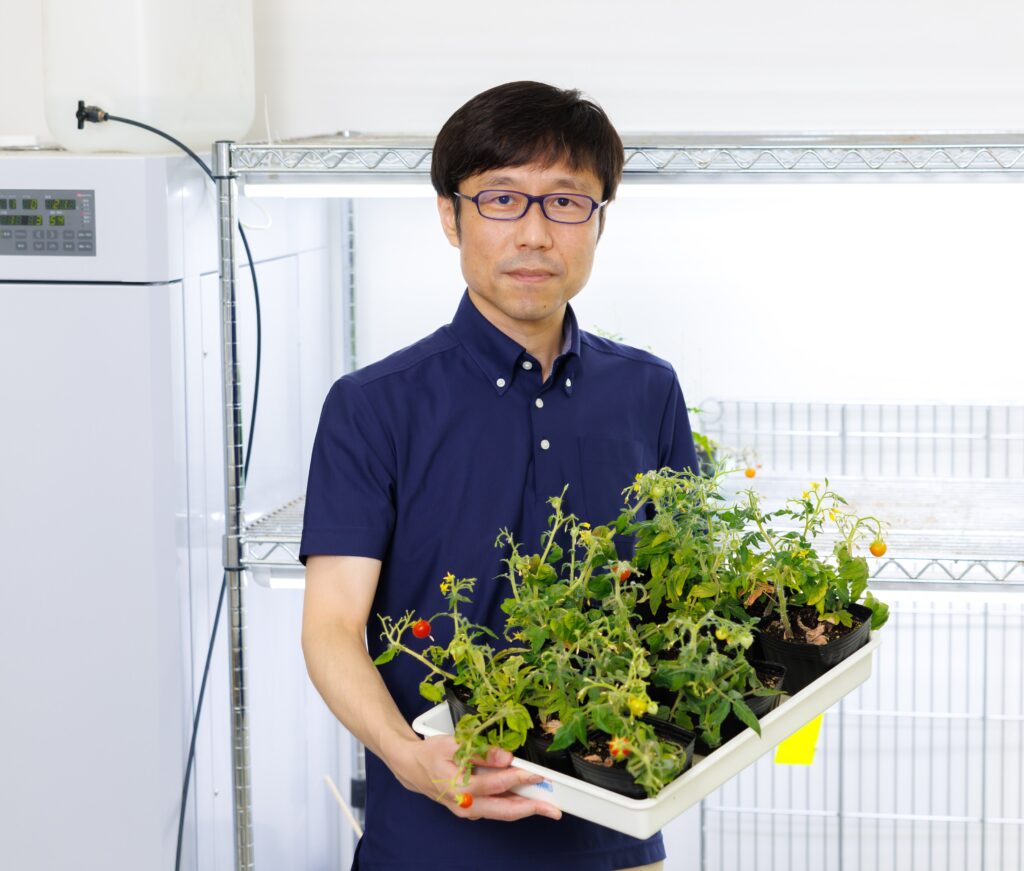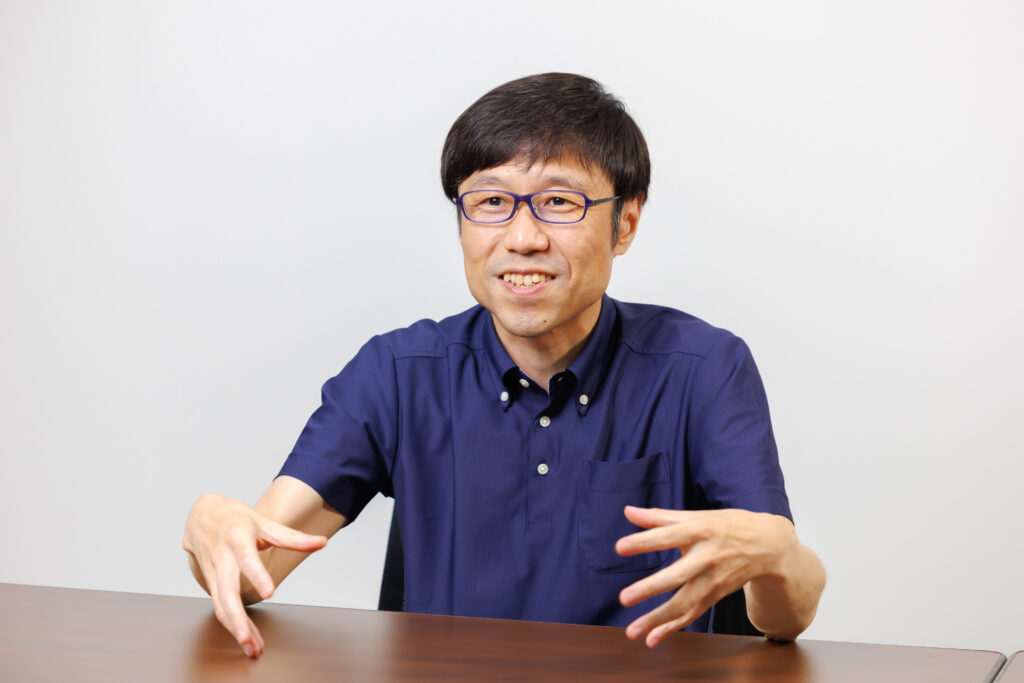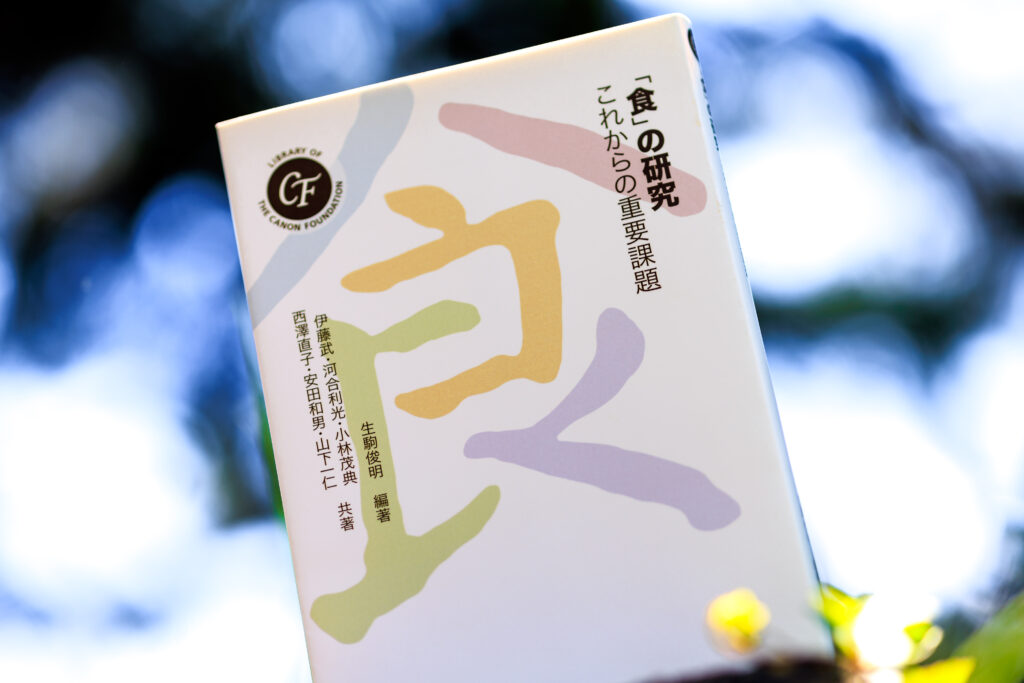
Associate professor Nobuhiro Suzuki from the Faculty of Science and Technology specializes in plant molecular biology. He conducts research at the molecular level—such as genes and proteins—to unravel the mechanisms at work within plants that protect them from harsh environments.
Plant molecular biology is an academic field that studies the physiological and life phenomena of plants at the molecular level. Unable to move on their own, plants need to adapt to the changing natural environment. How do plants protect themselves from life-threatening environmental stressors such as high temperatures, dryness, and salt damage? In my research, I seek to unravel the complex regulatory mechanisms for adapting to stress, mainly focusing on responses to heat.
I came across this research theme when I discovered a new protein related to heat stress adaptation during my time as a graduate student. The environmental stress adaptation of plants is controlled by a network that includes genes and proteins, and it was thought that this protein would not directly bind with DNA.
However, it became clear that this protein actually binds with DNA to encourage the activity of hormone signals protecting the body from heat. I was captivated by this previously unknown mechanism and made the analysis of its mechanism the main theme of my research.
Applying the adaptation system models of plants to the improvement of energy efficiency

The results of research into the heat adaptation mechanisms of plants can be expected to have applications in a wide range of fields. It is easiest to imagine applications in agriculture. Currently, we grow crops appropriate to the climate of the respective country or region, but as temperatures rise due to global warming, there is the possibility that we can no longer keep cultivating them.
Drastic selective breeding takes a long time to accomplish. However, if we can apply the heat stress adaptation mechanism to establish a cultivation method that enhances the ability of crops to withstand heat, we may be able to obtain effective methods for the social issue of a food crisis.
In recent years, I have also taken an interest in turning environmental stress adaptation mechanisms into mathematical models and applying them to human society. When plants try to adapt to the environment, they switch energy metabolism to an energy-saving mode in an effort to survive. The network structures at work within plants during such times are actually similar to the network models for economies and energy efficiency.
While still an idea now, there has been no prior research that sees cities and society as a cell and applies the excellent systems that plants have. I hope to realize joint research in collaboration with other fields such as mathematics and information science.
There are many things that human society can learn from plants
In nature, there are times when plants are affected by not one but several types of stress. Research has confirmed the existence of genes that are activated only when there is a combination of two or more stress factors, and we understand that the environmental adaptation networks of plants work in complicated and flexible ways.
There are also many phenomena that remain unexplained. They may hide hints that lead to the creation of innovation in human society. This research scope has extremely high potential, and I hope to gain various insights through research.
Plant molecular biology is an academic field that probes deep into the minuscule details that cannot be observed with the naked eye. It revolves around down-to-earth basic research, and requires researchers to adopt a stance that not only looks at data but also places importance on their own sensibility when dealing with plants.
Going forward, I hope to continue to spread the usefulness of plants in society through my research and contribute toward creating a society where humans and plants can coexist better than before.
The book I recommend
“Shoku no Kenkyu: Korekara no Juyo Kadai”(Research on Food: Key Issues Going Forward)
by Takeshi Ito, Toshimitsu Kawai, Shigenori Kobayashi, Naoko Nishizawa, Kazuo Yasuda, Kazuhito Yamashita, edited by Toshiaki Ikoma, Maruzen Planet

This book explains the current situation of food—including agriculture—as well as its issues. I often refer to it when thinking about research approaches and application ideas to see how I can contribute toward addressing issues from the perspective of plant molecular biology.
-
Nobuhiro Suzuki
- Associate Professor
Department of Materials and Life Sciences
Faculty of Science and Technology
- Associate Professor
-
Graduated from the Agricultural Production Course, Faculty of Agriculture, Kagawa University, and completed the master’s course of the university’s Graduate School of Agriculture before receiving his Ph.D. in Biochemistry and Molecular Biology after completing the doctoral program of the University of Nevada, Reno. Took on several positions—such as postdoctoral fellow at the University of Nevada, Reno and the University of North Texas as well as assistant professor at the Faculty of Science and Technology, Sophia University—before assuming his current position in 2019.
- Department of Materials and Life Sciences
Interviewed: July 2023